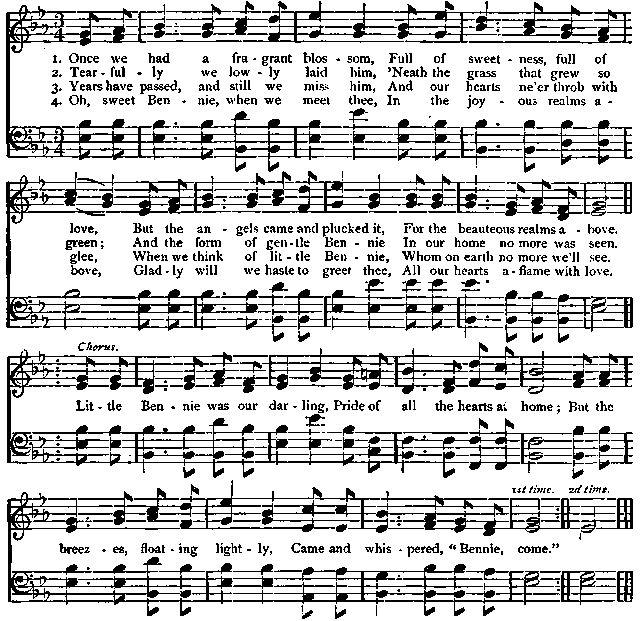Franklin Square Song Collection - online songbook
200 favorite songs and Hymns for Schools, Homes Lyrics & Sheet Music
| Share page | Visit Us On FB |
|
n8 |
FRANKLIN-SQUARE |
SONG COLLECTION. |
||
|
In an essay of Herbert Spencer's, on the origin and functions of Music, he suggests what is now perhaps generally admitted, that, as speech is the natural expression of thought, so music is the natural language of emotion. Certainly, if the words which we speak convey our ideas, the tones in which they are uttered convey our feelings in regard to them, and the various emotions of pain and pleasure, of discontent or satisfaction, of cordiality or aversion, of eager interest or utter indifference, are much more apparent in the emphasis, cadence and intonations of the voice than in the words themselves. All these may be called the music of speech, and just as words multiply in order to express |
the new and delicate shades of thought that increasing civilization and culture bring forth, so the intonations of voice are even more and more delicately representing the increasingly complex emotions of which we become capable. If, then, music is itself the very language of emotion, must not the habit of listening to good music, which is true to its character, have a double effect upon us, over and above the pleasure it creates—first, to develop within us and to intensify the very feelings which it is translating, and secondly, to enable us the better to convey to others the feelings which actuate us, even in the cadences and modulations of ordinary conversation? To share our thoughts |
|||
|
LITTLE BENNIE. |
G. R. POULTON. |
|||
|
|
||||
 |
||||
|
|
||||
|
with others by the use of well-chosen words, is an art which is fully recognized and cultivated; but to share our emotions by any truthful and adequate expression of them, is an art which the future has yet to teach us. Indeed, the very effort is regarded by many with somethinglike contempt, and he who succeeds best in hiding his feelings is most approved. If we are swayed by anger, impatience, jealousy, envy or hatred, the less we express ourselves the better. The sternest silence at such times is the surest method of subduing the rebellious moods. But to restrain and conceal feelings of love, kindness and good-will—to preserve an impassive |
exterior, when the heart thrills with affection and gladness— this is to crush out sympathy, and to silence the best promptings of humanity. The language of the emotions, whatever it may be, deserves the most earnest and careful cultivation, for by means of it is developed that sympathy which is the great bond of human society. Upon it we are dependent, both for our direct happiness and our permanent well-being. This it is which leads men to deal justly and kindly with each other, which heightens every pleasure and softens every pain, which gives rise to all domestic and social happiness, and makes life's hardest passages endurable. |
|||